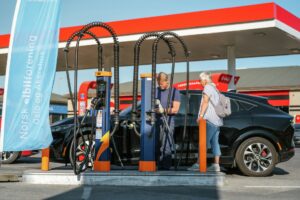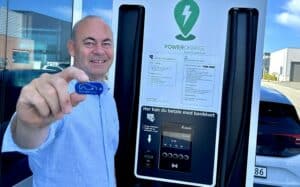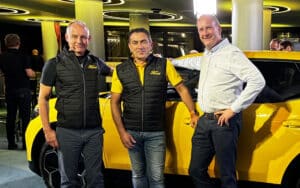The Norwegian EV Association is on a global mission: Speeding up the global EV uptake
In April, representatives from five countries spanning three continents visited Norway and the Norwegian EV Association to make plans for accelerating the global EV adoption.
Despite cold winters, long distances and mountainous landscape, Norway has paved the way for electrifying transport.
An EV market share in Norway reaching 90 percent in april, set the stage for a full week of learning and strategizing for a group of EV experts and enthusiasts participating in «The Global Week of EV Champions», hosted by the Norwegian EV Association.
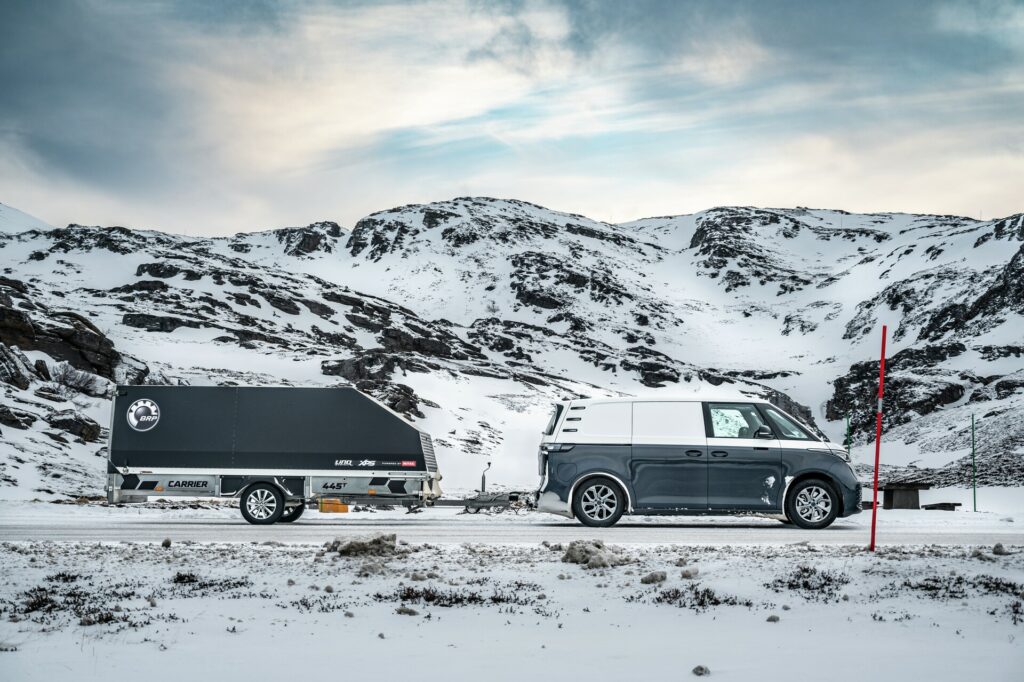
Learning on location
One of the participants was Clemente Gauer, from ABRAVEi, the EV association in Brazil.
– Norway will always be the benchmark and north star when it comes to electric vehicles, says Clemente.
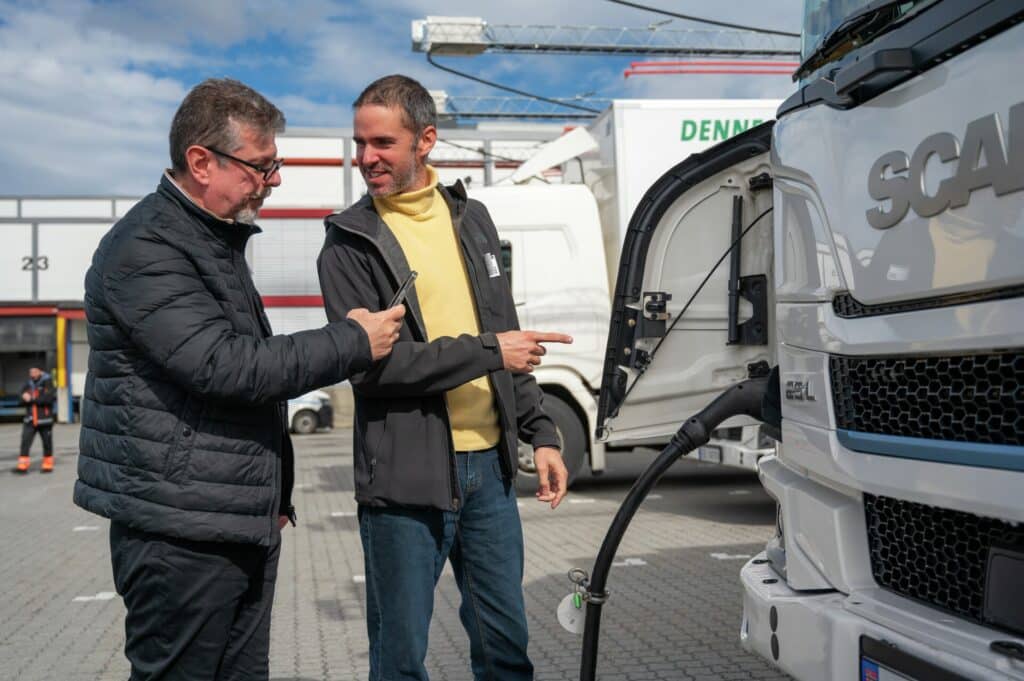
Clemente and his colleague, Rogerio Markiewicz, took part of the week together with key players and fellow EV enthusiasts from South Africa, India, Mexico and Chile.
Viridiana Aguilera, from ANVES (National Association of Electric and Sustainable Vehicles) in Mexico is very satisfied after a week in Oslo:
– I have learned a lot from the Norwegians and also all the others. This has been very inspiring, Viridiana says.

Cooperation with ClimateWorks Foundation
The week was a part of the Norwegian EV Association’s international project funded by the ClimateWorks Foundation through their Drive Electric Campaign.
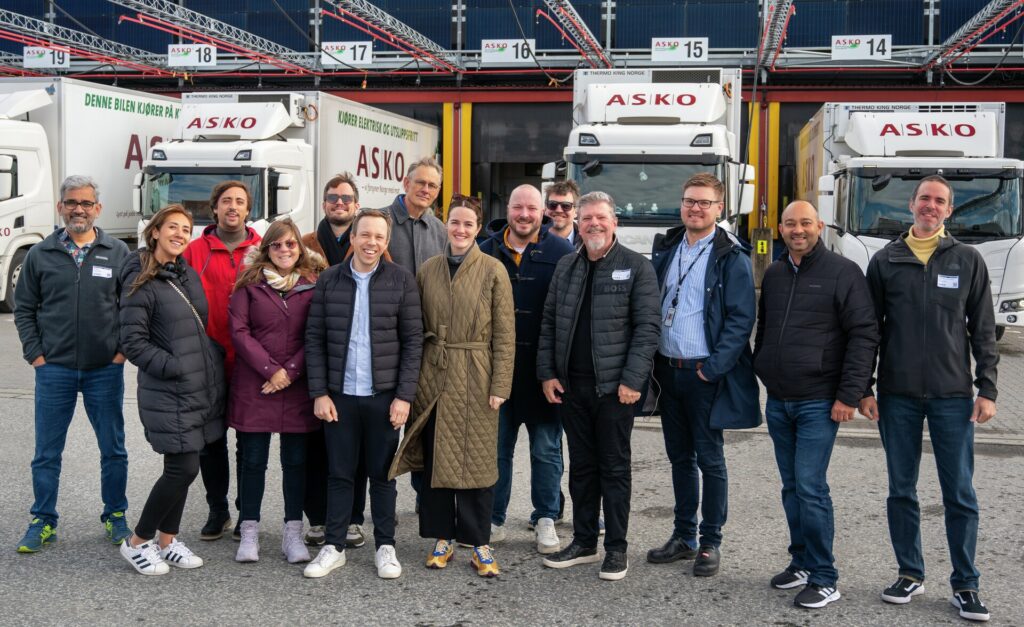
The aim is to share experiences from Norway with other countries in the early stages of electrification and hopefully accelerate the whole process of changing from internal combustion engines to zero emission solutions.
– We are thrilled to share our experiences about how Norway has become the number one EV country in the world and discuss how these experiences can be adopted and translated to the context of emerging EV markets, says Markus Nilsen Rotevatn, project lead in the Norwegian EV Association.
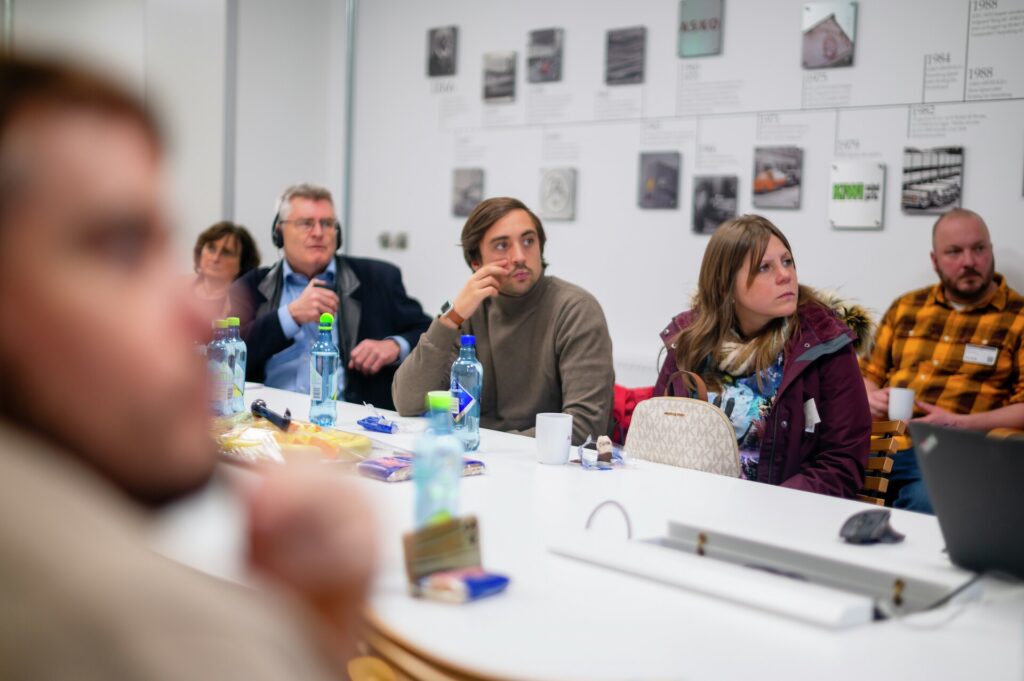
The Norwegian recipe for success: Consumer-centered EV policies
The story about Norway, is a story about putting the consumers in the spotlight and policies that made changing from a fossil-fueled car to an EV an easy decision for anyone.
Policy makers in Norway early understood the role of the consumer as the protagonist in this technology shift.
– It is the people making that change in their everyday life that is litterally driving this change forward, says Markus from the Norwegian EV Association.
And for that a consumer-based organization was needed:
– During this week we have learned that you need an association who has the driver’s interest at heart and that can have an impact on political processes, says Gerrit Kruyswijk.
– And that it’s key to work close with policy makers along with the interests of consumers. You need an holistic approach to accelerating the market, adds Hiten Parmar.
They are both representatives from The Electric Mission, an organization working with electric mobility in South Africa.
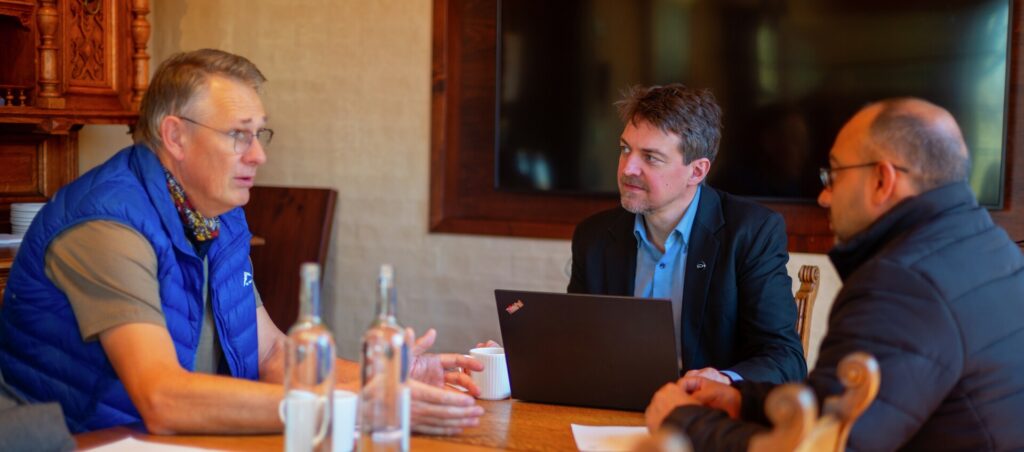
How policies changed the game
The stay in Oslo included, among other things, a visit to the Norwegian Parliament, where the participants met with MP and former Minister of Climate and Environment, Sveinung Rotevatn.
He spoke about the most important policies that Norway have implemented to reduce the purchase cost of an electric vehicle.
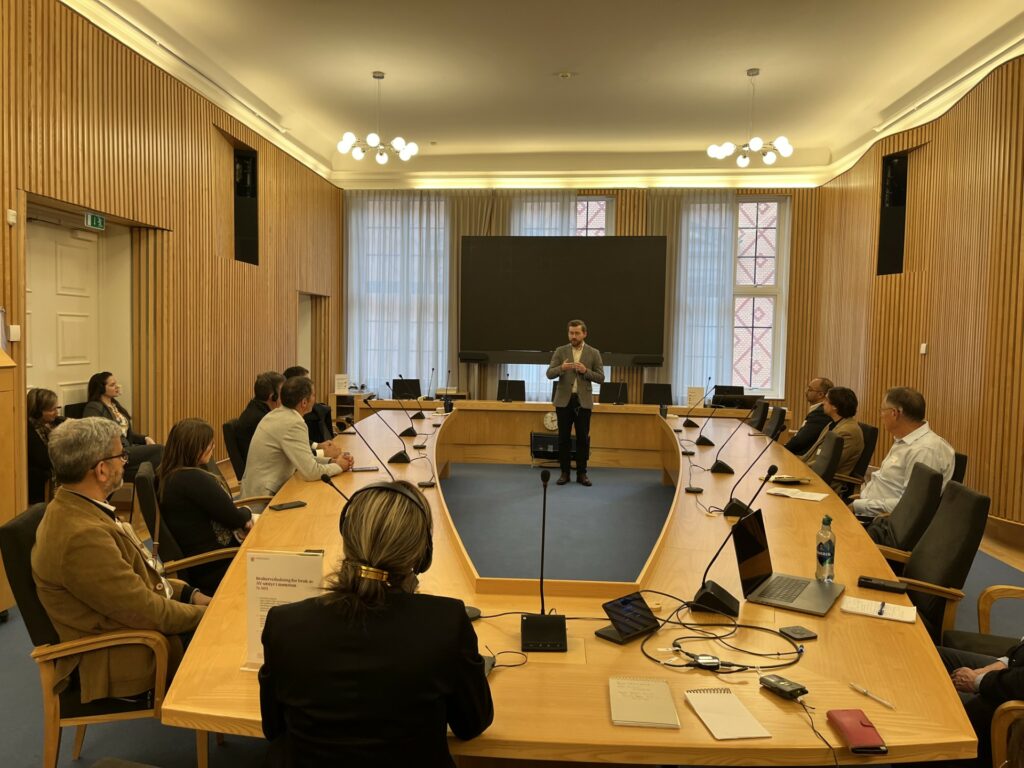
The parliamentarian and former minister also emphasized that while the key motivation for a decision maker is the great potential in climate gas emission cuts and improving local air quality, its crucial to understand that the main motivator for a consumer is found in the wallet.
Markus Nilsen Rotevatn from the Norwegian EV Association agrees:
– Norwegian EV policies have primarily been about taxing what we didn’t want by increasing purchase tax and adding VAT on new polluting vehicles. At the same time, we promoted what we wanted, giving exemptions from the same purchase tax and VAT for EVs. The consumers in Norway have responded accordingly.
In addition, the EV drivers in Norway have been incentivized by passing the toll roads for free, being accepted in the bus lanes, making the everyday life for drivers choosing to drive emissions free both easier and cheaper.
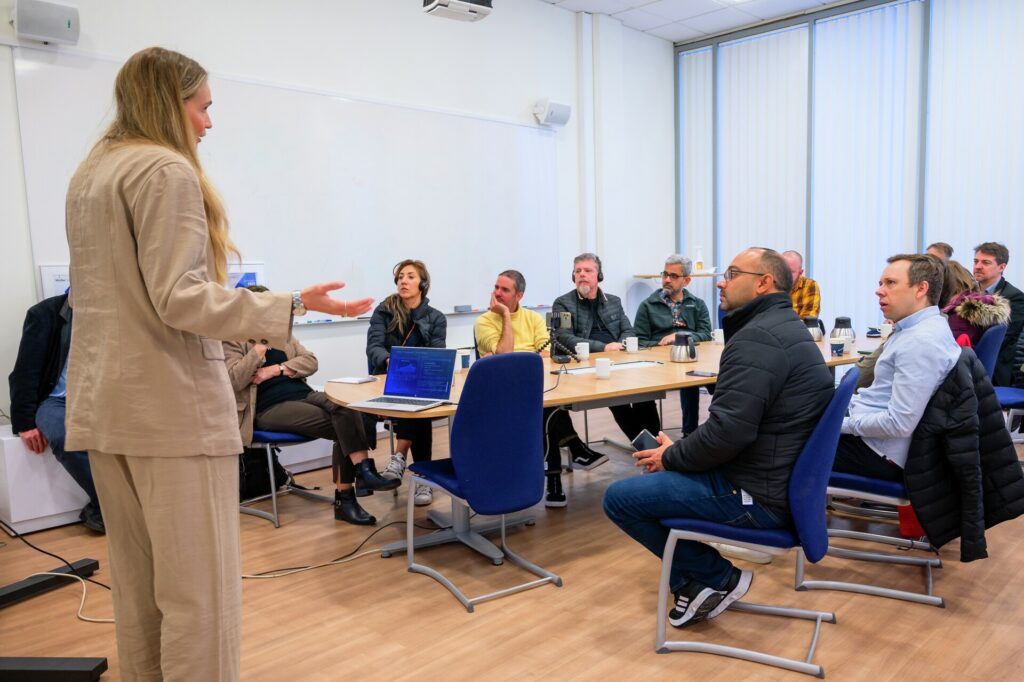
All of this was built upon a policy framework implemented by the European Union, pushing the supply side (the automotive industry and car manufacturers) to increase their production and sales of EVs in Europe by setting stricter and stricter C02-standards.
– One of the conclusions of the week was that both supply-side policies challenging the industry, and demand-side policies making EVs the easy and cheaper choice for the people driving cars is a perfect mix to accelerate the EV uptake, concludes Markus.
– I’m going home telling people that everything that are being done in Norway, also can be done in Brazil, adds Clemente from ABRAVEi.

Busting the myths
As EV development gain speed, there is an increased intensity of myths appearing.
Unexpectedly, the visit to Oslo suddenly became very valuable when legislators in the state of Sao Paolo, Brazil proposed a set of laws and regulations for EVs and charging, based on myths about EVs and fire safety.
The suggested laws demand physical fire walls or several meters free space between charging cars.
The representatives from ABRAVEi, started recording from parking garages and from talks with key government officials, seeing chargers everywhere, both inside and outside, and even inside the main garage of the Fire Department in Oslo.

The films from Norwegian garages have gone viral in Brazil following the controversial law proposal.
ABRAVEi is now working non-stop with legislators, in close dialogue with the Norwegian EV Association, trying to stop the proposal.
A small step has already been taken, with the organization managing to get the decision originally planned for end of April, to be postponed until the end of June.
Boosting the EV-development in emerging EV markets
The International Energy Agency recently announced that “the world’s electric car fleet continues to grow strongly”.
This came in their report The Global EV Outlook 2024, that also states that the global success of EVs will be determined by how the sales pick up in emerging and developing economies outside China.
Amit Bhatt, Managing Director for ICCT India, and also a part of a growing community of EV drivers in India, provides us with a brief overview of the EV numbers back home:
– Last quarter close to 50 percent of all new three-wheelers was electric and the EV market share of cars ended on about 2 percent. But the numbers are changing as local car producers like Tata and Mahindra are committed to electric, Amit says.
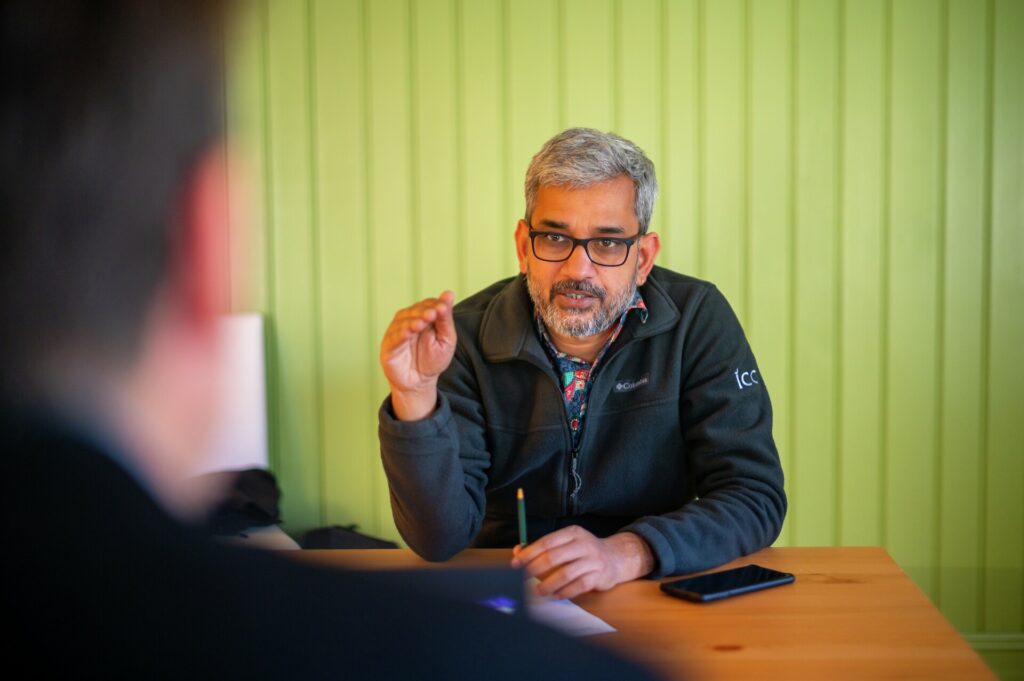
As many countries find themselves in similar situations, where the adventure of electric transport is just beginning, sharing experiences and leapfrogging can have substantial impact.
– Visiting Norway gives us the opportunity to look at our EV-future, already being lived by someone. With all the learnings and mistakes that are being done we can actually skip several steps and go directly to what as actually successful, Clemente from ABRAVEi in Brazil says.
Trying to accelerate the EV market uptake towards a possible tipping point in 2026
The Global Week of EV Champions was an initiative by the Norwegian EV Association with a set of partner organizations in key emerging EV markets, but the work won’t stop here.
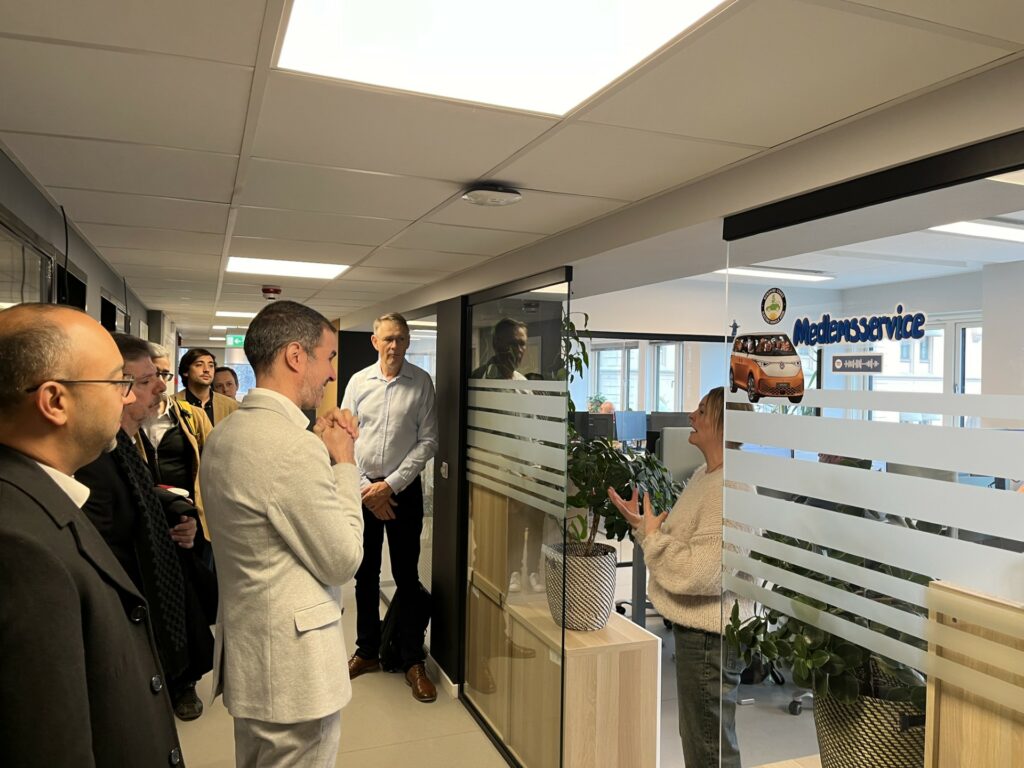
Through participation in the global Drive Electric Campaign and partnering with the ClimateWorks Foundation, the Norwegian EV Association remains committed to sharing strategies, analysis and experiences from their northern laboratory of electric transportation.
– We are closing in on our target of reaching 100 percent electric new car sales during 2024 in Norway. But Norway is a small country. To combat severe climate change we need to see the same in the rest of the world. If our experiences from the Norwegian laboratory can be helpful to speed up the process in Brazil, Chile, Mexico, South Africa and India, we are both humbled, honoured and excited to share, says Markus Nilsen Rotevatn from the Norwegian EV Association.
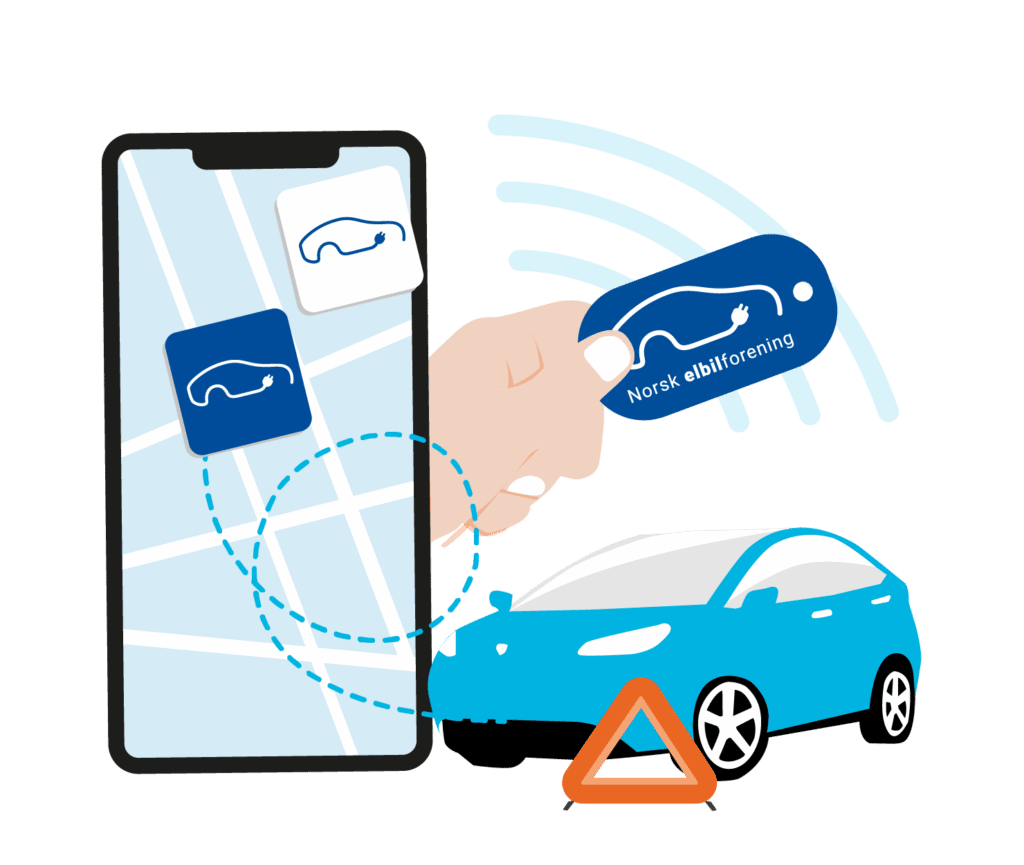
Bli medlem!
Få Norsk elbilforenings ladebrikke som gir deg tilgang til ladestasjoner i Norge og Europa, eksperthjelp på lading og supertilbud på veihjelp. Gjør som over 120 000 andre elbilister!
